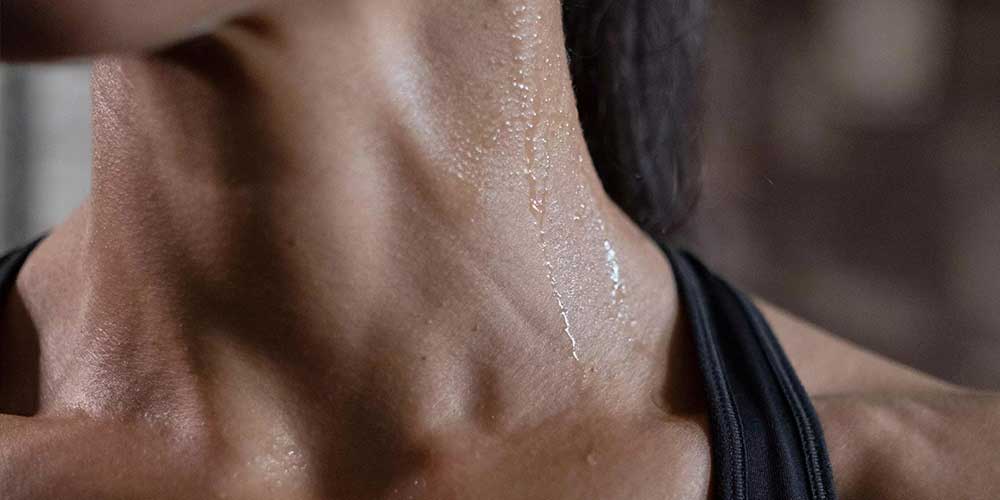
Sweating is a physiological response of our body to heat to regulate body temperature. Sweating that is above normal is called hyperhidrosis (excessive sweating). It is usually caused by overactive sweat glands in the armpits, palms, or soles of the feet. There are two types of sweating from a medical point of view.
First one essential sweating, which means sweating of unknown cause. Essential sweating is caused by factors such as nervous causes, stress, excessive excitement, and excessive emotionality. The second is secondary sweating. There is an underlying cause. Hormonal diseases are the most common causes of excessive sweating.
What is Excessive Sweating (hyperhidrosis)?
Essential sweating, which means sweating of unknown cause. Essential sweating is caused by factors such as nervous causes, stress, excessive excitement, and excessive emotionality. The second is secondary sweating. There is an underlying cause. Hormonal diseases are the most common causes of excessive sweating.
- These diseases may be the cause of your sweating.
- Lung ailments
- Fever and infections
- Tuberculosis
- Vitamin C and D deficiencies in children
- Diabetes
- Low blood sugar (hypoglycemia)
- Hyperthyroidism, i.e. overactive thyroid gland
- Heart diseases
- Some types of cancer
- Complex regional pain syndrome
- Thyroid hormone, morphine, pain reliever,
- Certain types of medications, such as antipyretics or antidepressants
Your diet may also be the cause of sweating.
In case of excessive sweating caused by hormonal disorders, diseases that accelerate metabolism should be evaluated. Hyperthyroidism, that is, overactive thyroid gland, is one of the most common systemic diseases that cause sweating. Therefore, palpitations, weight loss, tremors in the hands, which are other symptoms of hyperthyroidism, signs of irritability and hair loss should be checked. Like hyperthyroidism, excess growth hormone and abnormal work in adrenaline are other hormonal diseases that cause excessive sweating. While excessive sweating may occur in women, especially after menopause, excessive weight, alcohol or drug use, spicy foods, factors such as caffeine can also increase sweating.
How to Treat Sweating?
Sometimes, excessive sweating may disappear only with the advancing age of the person. However, if sweating causes serious consequences, it should be treated. In the treatment, lifestyle changes are recommended first. If the desired result cannot be obtained with this method, there are many different options from drug treatment to surgical treatment methods.
Some of the sweating treatment methods can be listed as follows:
- Lifestyle Change: It is recommended that the person lose weight. Salt and should be considered.
- Coping with Stress: In cases that cause sweating, coping, especially stress, can be learned.
- Hormone replacement therapy can be started.
- Iontophoresis: Sweat appropriately through the skin with a low electrical environment is reduced. It is twice for the identified need. However, it could be more. Usage is in-store and footstool.
- Botox Method: Its effect starts from the beginning and lasts for 6-9 months. Almost no side effects. A rogue method is preferable to redirect this way.
- Surgery Method: The last choice with primary type ovary is surgery. Requires general anesthesia. The armpit is cheap and a good gift for the inside to pay for. Scars may remain after surgery.
